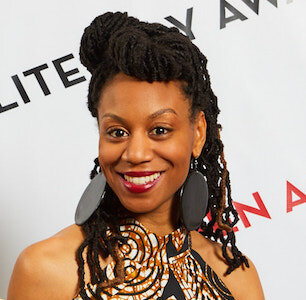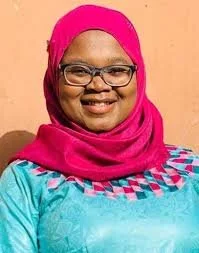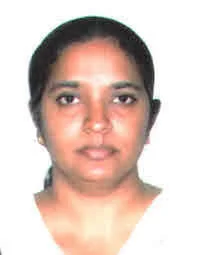
Audio
State Violence as Gender Violence
September 14, 2023 - Fall 2023 CRG Forum Series
Book Launch of The Cunning of Gender Violence (Duke University Press): Second Part of Three-Part Event (Host: Berkeley Center for Race and Gender)
This event included Inderpal Grewal (Professor Emeritus of Women’s, Gender, and Sexuality Studies, and of American Studies, Yale University), Nadera Shalhoub- Kevorkian (Lawrence D. Biele Chair in Law at the Faculty of Law-Institute of Criminology and the School of Social Work and Public Welfare, The Hebrew University of Jerusalem, and Professor and Global Chair in Law, Queen Mary University of London (United Kingdom)), Shahla Talebi (Associate Professor, School of Historical, Philosophical and Religious Studies, Arizona State University), Leti Volpp (Robert D. and Leslie Kay Raven Professor of Law in Access to Justice, UC Berkeley School of Law, and Director of the Center for Race and Gender, UC Berkeley), and discussant Sherene H. Razack (Distinguished Professor and the Penny Kanner Endowed Chair in Women’s Studies, Department of Gender Studies, UC Los Angeles).
Event sponsored by the Center for the Study of Social Difference at Columbia University and the Center for Race & Gender at UC Berkeley with support from the Henry Luce Foundation, and co-sponsored by the Department of Gender and Women's Studies and the Center for Middle Eastern Studies.
Just three
In 2020 and 2021, the CSSD and Catherine Lasota hosted the podcast Just Three.
Check out the archive below and hear artists, activists, scholars, and others from around the world talking about how their work intersects with social justice, and how we can confront the biggest social justice challenges of our time.
Listen now on Apple Podcasts and Spotify!
FULL TRANSCRIPTS AVAILABLE - see links below episode titles
Episode 9 - Just Three: noni carter
Release Date: March 24, 2021
Total Length: 22:35
Full Transcript
In our ninth and final episode of season one of the JUST THREE podcast, host Catherine LaSota speaks with writer, scholar, and educator Noni Carter. Noni was a Graduate Coordinator for the Transnational Black Feminisms working group at the Center for the Study of Social Difference (2019-20).
Noni discusses her life in academic work, questioning the formative language, and the definitions of "human" and "re-humanizing," that is deeply entrenched in various practices. She asks, how can we relate to the world, the environment, and more in different ways? She also talks about the narratives that are told around young black women of color, and her own goals as a writer of YA and speculative fiction. Noni also brings up the importance of intersectionality and celebrating each other's differences, and the importance of slowing down and asking ourselves, as individuals, which of our deeply held beliefs are socially constructed.
Noni Carter is a historical and speculative fiction author. She has published work in RSA Journal, Kweli Journal (forthcoming), and is the author of the YA historical fiction novel, Good Fortune (Simon & Schuster, 2010), winner of the Parent’s Choice Gold award. She is a 2016 graduate of Voices of Our Nation and the recipient of the 2019 PEN/Phyllis Naylor Working Writer Fellowship for her work-in-progress novel Womb Talk. Noni is currently finishing a PhD in French and Francophone studies with a focus on memory, gender, and slavery in the literary traditions of the Black diaspora, specifically the French Caribbean. She works as an editorial assistant with Small Axe Journal and as rapporteur for Columbia’s Cultural Memory Seminar. She served as a 2018-2019 graduate fellow for the Institute for Research on Women, Gender, and Sexuality, and as the 2019-20 graduate assistant for CSSD working group Transnational Black Feminisms.
More about Columbia University's Cultural Memory Seminar: https://universityseminars.columbia.edu/seminars/cultural-memory/
More about Small Axe Journal: http://smallaxe.net/
Learn more about the Transnational Black Feminisms working group here: https://www.socialdifference.columbia.edu/projects-/transnational-black-feminisms
Episode 8 - Just Three: Jen Lewis
Release Date: March 10, 2021
Total Length: 23:31
Full Transcript
In our eighth episode of the JUST THREE podcast, host Catherine LaSota talks with artist Jen Lewis, who contributed a chapter to and provided the cover art for the Palgrave Handbook of Critical Menstruation Studies, which was developed by the Menstrual Health and Gender Justice working group at the Center for the Study of Social Difference. In this conversation, Jen talks about her artistic process in working with photography and menstrual fluid, the problems with how we are socialized about menstruation, and the importance of engaging with other people in building our conversations around social justice issues. Jen Lewis is the Conceptual Artist and Menstrual Designer behind Beauty in Blood, a bold, transformative macrophotography and video art project that confronts social taboos pertaining to menstruation and the female body. She received her B.A. in the History of Art from the University of Michigan (Ann Arbor) in 2001. Her work has been displayed in group exhibitions internationally, such as Women at the Contemporary Art Institute of Detroit (United States), Period Pieces at the Urban Artroom (Sweden), the 9th Annual Juried Art Show at The Kinsey Institute (United States) and Art to Change the World at ArtPrize® (United States) and, most recently, the Nasty Women Exhibition at the Knockdown Center in New York City. Her work can also be seen in The Vagina Dispatches video series produced by The Guardian. Jen also curated a special theme exhibit for the joint conference of the Society for Menstrual Cycle Research and the Center for Women’s Health and Human Rights entitled “Widening the Cycle: A Menstrual Cycle and Reproductive Justice Art Show” in June 2015. Jen calls the Ann Arbor, Michigan area home.
Learn more about Jen Lewis and her work here: www.beautyinblood.com Find out more about some of Jen's projects and collaborators here: www.wideningthecycle.com www.factoronto.org www.menstruationresearch.org
Learn more about the Menstrual Health & Gender Justice working group here: www.socialdifference.columbia.edu/projects-/menstrual-health-and-gender-justice
Episode 7 - just three: george estreich
Release Date: February 24, 2021
Total Length: 26:56
Full Transcript
In our seventh episode of the JUST THREE podcast, host Catherine LaSota talks with writer and musician George Estreich, who worked with Rachel Adams on the publication of Alison Piepmeier's book Unexpected: Parenting, Prenatal Testing, and Down Syndrome (NYU Press, February 2021), which was celebrated in a launch event hosted by the Motherhood & Technology working group at the Center for the Study of Social Difference.
George Estreich’s publications include a chapbook, Elegy for Dan Rabinowitz (Intertext, 1993) and a full-length poetry collection, Textbook Illustrations of the Human Body, which won the Gorsline Prize from Cloudbank Books (2003). The Shape of the Eye (SMU Press, 2011; Penguin, 2013), his memoir about raising a daughter with Down syndrome, received the 2012 Oregon Book Award in Creative Nonfiction. Estreich has published essays and articles in The New York Times, The Oregonian, Avidly, The American Medical Association Journal of Ethics, Salon, Tin House, and McSweeney’s Internet Tendency. His recent book Fables and Futures: Biotechnology, Disability, and the Stories we Tell Ourselves (MIT Press, 2019) was a finalist for the Oregon Book Award and was named a Best Science Book of 2019 by NPR's Science Friday. Fables and Futures explores the way we think and talk about human-directed biotechnology, from next-generation prenatal tests to CRISPR/Cas9, the genome-editing tool. Blending personal narrative and scholarship, Estreich argues that with biotech able to select and shape who we are, we need to imagine what it means to belong.
Learn more about George Estreich and his work here: https://georgeestreich.com/. More about Alison Piepmeier's book Unexpected, including a link to purchase from NYU Press, can be found here: https://nyupress.org/9781479879953/unexpected/. Learn more about the Motherhood & Technology working group here: https://www.socialdifference.columbia.edu/projects-/motherhood-and-technology.
Episode 6 - just three: Alyssa A.L. James
Release Date: February 10, 2021
Total Length: 13:56
Full Transcript
In our sixth episode of the JUST THREE podcast, host Catherine LaSota talks with writer, podcaster, and anthropology graduate student Alyssa A.L. James, who works as the graduate coordinator for the Black Atlantic Ecologies working group at the Center for the Study of Social Difference. In this conversation, Alyssa talks about her research, the podcast she co-hosts with fellow Black woman Ph.D. student in Anthropology Brendane A. Tyne, and the fact that none of us are free until all of us are free. She also shares the following quote that she always keeps close by: “People need to see that, far from being an obstacle, the world's diversity of languages, religions and traditions is a great treasure, affording us precious opportunities to recognize ourselves in others.” (attributed to Youssou N'Dour) Alyssa A.L. James is a third-year anthropology Ph.D. student in the Department of Anthropology at Columbia University. She is a 2020 SSHRC Doctoral Fellow whose research centers the stakes of commodifying the colonial past in the contemporary revival of coffee production in Martinique. She is an editorial assistant for the Small Axe journal, and co-host of the Black feminist anthropology podcast, Zora's Daughters. In her free time, you'll find Alyssa dancing, traveling, and writing about it.
Learn more about the Zora's Daughters podcast and listen to episodes by visiting their website here. You can also find Zora's Daughters on Apple, Spotify, and other podcast platforms. Follow them on Instagram here.
Learn more about the Black Atlantic Ecologies working group, which is supported by the Earth Institute at Columbia University, here.
Episode 5 - just three: MUSU BAKOTO SAWO
Release Date: January 27, 2021
Total Length: 28:04
Full Transcript
In our fifth episode of the JUST THREE podcast, host Catherine LaSota talks with activist Musu Bakoto Sawo, who contributed a chapter entitled Let Girls Be Girls - My Journey Into Forced Womanhood to the Palgrave Handbook of Critical Menstruation Studies, which was developed by the Menstrual Health and Gender Justice working group at the Center for the Study of Social Difference.
In this conversation, Musu, who has been an activist since the age of 9, discusses issues of patriarchy and misuses of power that perpetuate the problem of gender violence, and she also shares her personal history as a child bride and female genital mutilation survivor.
Musu Bakoto Sawo is the national coordinator for Think Young Women and the deputy executive secretary of the Truth, Reconciliation and Reparations Commission of The Gambia. She has gained in-depth knowledge of human rights through more than 17 years of activism in children and women’s rights, and her membership in different community-based organizations. She has translated this knowledge into capacity building, research, networking, program development, and practical engagement with human rights mechanisms, as well as with grassroots, national, and international organizations and platforms. She holds an LLM in human rights and democratization in Africa.
Learn more about the Menstrual Health and Gender Justice working group here, and find the open access Palgrave Handbook of Critical Menstruation Studies, for which Musu Bakoto Sawo contributed a personal narrative, here.
Episode 4 - just three: Deepthi SUKUMAR
Release Date: January 13, 2021
Total Length: 26:19
Full Transcript
In our fourth episode of the JUST THREE podcast, and our first episode of 2021, host Catherine LaSota talks with activist Deepthi Sukumar, who contributed a chapter entitled Caste is My Period to the Palgrave Handbook of Critical Menstruation Studies, which was developed by the Menstrual Health and Gender Justice working group at the Center for the Study of Social Difference.
In this conversation, Deepthi talks about her decades-long work with the Safai Karmachari Andolan organization, a movement for the elimination of manual scavenging. Manual scavenging is the illegal practice of cleaning, carrying and disposing of human excreta from dry latrines or sewers, often done by people who fall lowest in the caste hierarchy of India. Deepthi discusses her work to empower women who are manual scavengers to stand up for their rights, and she offers some powerful examples of social transformation. Deepthi Sukumar is a Dalit woman and an activist. She has been working for the liberation and rehabilitation of women engaged in manual scavenging for more than two decades. Her parents migrated to the city of Chennai from a remote area in Andhra Pradesh for education and employment. She travels widely to villages and small towns to meet Dalit women living in difficult circumstances and who have become victims of human rights violations.
Learn more about the Safai Karmachari Andolan organziation here.
Learn more about the Menstrual Health and Gender Justice working group here, and find the open access Palgrave Handbook of Critical Menstruation Studies, for which Deepthi Sukumar contributed a personal narrative, here.
Episode 3 - just three: Işın Önol
Release Date: December 2, 2020
Total Length: 25:10
Full Transcript
In our third episode of the JUST THREE podcast, host Catherine LaSota talks with curator and writer Işın Önol, a member of the Women Mobilizing Memory working group at the Center for the Study of Social Difference.
Işın discusses the importance and difficulty of truly listening to stories outside of the dominant narrative(s), and the possibilities of curation and collaboration. Isin Önol has been working as an independent curator (predominantly in the USA, Austria and Turkey) since 2009. Before that, she led the Elgiz Museum of Contemporary Art as its director and curator in Istanbul for three years. (2006-2009) She is an enthusiast producer of exhibition projects, talks, and other art-related events as well a researcher working in the field of contemporary art, cultural studies, and art education. Her curatorial research focuses on interconnecting archival information with oral histories to create platforms for collective memory that contrast and confront official narratives.
More about Işın Önol can be found here.
Learn more about the Women Mobilizing Memory working group here.
Episode 2 - just three: Annette mwansa nkowane
Release Date: December 2, 2020
Total Length: 21:14
Full Transcript
In our second episode of the JUST THREE podcast, host Catherine LaSota talks with nurse and midwife Annette Mwansa Nkowane, a member of the On the Frontlines: Nursing Leadership in Pandemics working group at the Center for the Study of Social Difference. "We cannot push the agenda if we don't have evidence." - Mwansa Nkowane Mwansa is from Zambia and, during the Ebola outbreak, she served as the Technical Officer of Nursing and Midwifery in the World Health Organization's Health Workforce Department in Geneva. As part of the On the Frontlines project, Mwansa conducted interviews with nurses in Sierra Leone and Liberia in August 2019. In this episode, Mwansa discusses the role of nurses and midwives in improving the health of underserved, marginalized, and vulnerable populations, and the importance of communication, preparation, and recognition with the nursing population. She also discusses her current work around COVID in Zambia.
More about Annette Mwansa Nkowane can be found here.
Learn more about the On the Frontlines: Nursing Leadership in Pandemics working group here.
Episode 1 - just three: Kayhan irani
Release Date: November 18, 2020
Total Length: 19:27
Full Transcript
In our first episode of the JUST THREE podcast, host Catherine LaSota talks with artist, writer, and performer Kayhan Irani, a member of the Migrant Personhood and Rights working group at the Center for the Study of Social Difference. Kayhan Irani is an Emmy-award winning writer, a performer, and a Theater of the Oppressed trainer. She creates art to build community, offer spaces for healing, and to engage audiences in social justice issues. She is currently working on a new one-woman show, There is a Portal, which asks: Can the story of an Iranian-Indian immigrant offer a space of healing for all Americans?
More about Kayhan Irani.
Watch a trailer for There is a Portal here.
Support the funding campaign for There is a Portal here.
Learn more about the Migrant Personhood and Rights working group.
Music in our podcasts is by Blue Dot Sessions, and episodes are mixed by Craig Eley.
Catherine LaSota, host of the JUST THREE podcast, is Executive Director of the
Center for the Study of Social Difference at Columbia University.









